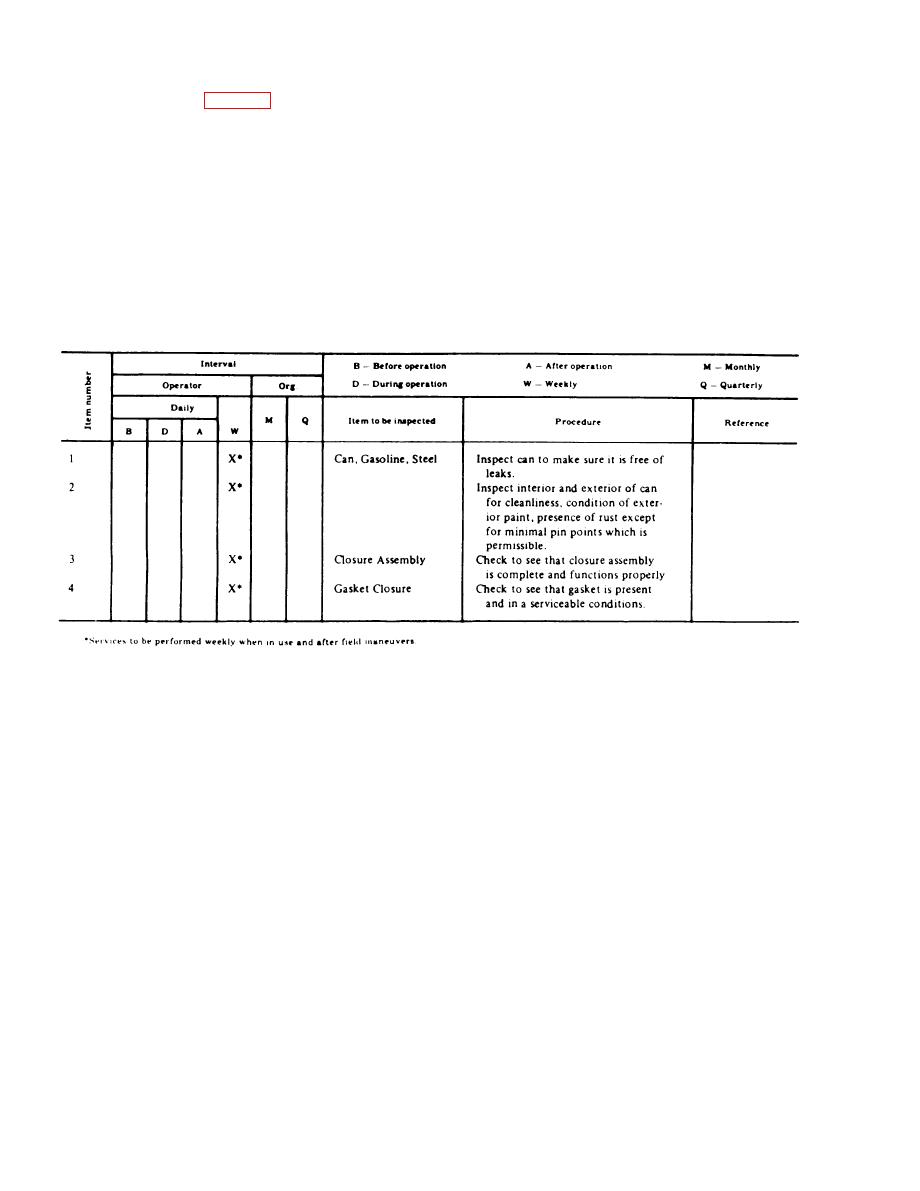 |
|||
|
|
|||
|
|
|||
| ||||||||||
|
|
 TM 10-7200-200-13
intervals are listed in table 2-1.
providing the can is not ruptured and the dents do
2-5. Inspection
not impair stacking.
a. Condition of Paint. Check each can for condition
(2) A can with dents that have caused a rupture
of paint and indicate whether repainting is required.
anywhere in the can is not repairable. A can that
b. Dents. Check each can for dented condition.
does not stack properly due to distortion caused by
(1) A can may be used without repairs to dents
dents is nonrepairable.
Table 2-1. PREVENTIVE MAINTENANCE CHECKS AND SERVICES
except the handle assembly, renders it nonrepaira-
ble.
general cleanliness and presence of contaminants.
f. Flange. Check condition of flange on each can.
(1) Can containing removable contaminants
Make sure the flange is securely seated in the head
should be cleaned thoroughly before being placed in
and that the flange threads are in good condition.
use.
Cans with crossed, stripped, rusted, or worn flange
(2) Cans containing a residue of asphalt, tar, or
threads are classified as nonrepairable.
similar substance that cannot be removed are
classified as nonrepairable.
g. Closure and Gasket. Check each can for missing
d. Rust. Check exterior and interior of can for
or defective closure and/or gasket and indicate repair
presence of rust.
when required.
(1) Cans with moderate exterior rusting are
h. Vent Tube. Check condition of vent tube in each
repairable if rust can be removed by buffing or
can. Clogged vent tubes should be cleaned. Cans with
sandblasting without weakening the metal. The
broken or missing vent tubes may be used only in an
interior of cans must be free of loose rust before they
emergency.
are used.
i. Handle Asseembly. Check condition of handle
(2) Cans with excessive interior rusting that
assembly. Cans with holes, dents, or rips in the
cannot be removed by solvent or caustic washing or
handles are serviceable if they cart be carried
cans with excessive exterior rusting are classified as
without injury to hands. When such damage must be
nonrepairable.
repaired before cans can be carried safely, indicate
e. Holes. Check each can carefully for presence of
repairs required.
holes. A hole, rip, or rupture anywhere in the can,
2-2
Change 1
|
|
Privacy Statement - Press Release - Copyright Information. - Contact Us |